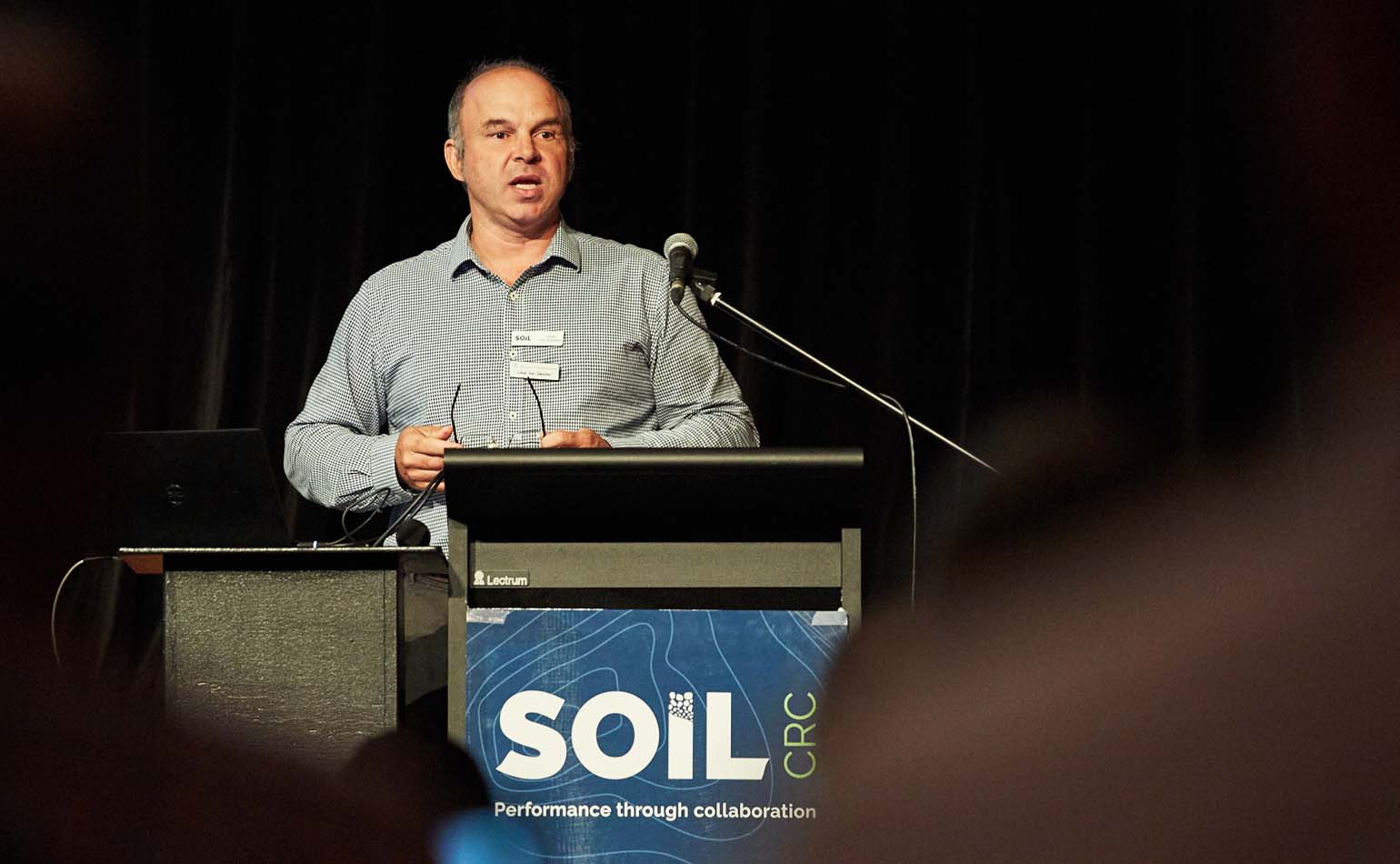You know that cliche about finding a job you love and never working a day again? Well, that’s just what Lukas Van Zwieten has managed to do.
Program Leader for the Soil CRC’s Program 4 – Integrated and precision soil management solutions, Lukas is a Senior Principal Research Scientist at NSW Department of Primary Industries (NSW DPI).
For Lukas, studying soil feels like the sort of thing you would do as a hobby. So working in soil research focussing on environmental and soil chemistry, he gets to work in what he loves. Every. Single. Day.
Not satisfied to only work in soil during the week, five years ago Lukas and his family moved to a small farm in northern NSW. Their main crops are custard apples, figs and garlic and they also run cattle. He applies all the principles that he has learned over the past thirty years studying soil to his farm.
“We’ve been implementing technologies to improve soil and water management; we’re improving soil carbon, using moisture sensors to control irrigation, using organic amendments and organic methods for weed management. We’ve also integrated animals into our production systems,” Lukas says.
Lukas studied both his undergraduate (Bachelor of Science in Agriculture) and PhD (microbial processes for herbicide degradation) at the University of Sydney. He went on to join what was then Agriculture NSW for a special project on cattle tick dip sites, working on the management and remediation of legacy contamination at these sites.
Lukas became involved in the Soil CRC bid in early 2017 while working in his current role at NSW DPI.
“There are a lot of linkages between past and current activities within the soils team at NSW DPI and the Soil CRC. Within the soils unit, we were looking at integrated solutions for improving soil and addressing soil constraints, soil carbon content, climate mitigation and adaptation. At NSW DPI, we recognised that we could contribute so much to the design and execution of the programs in the Soil CRC,” Lukas says.
As a Soil CRC Program Leader, Lukas experiences first-hand, the collaborations between researchers, grower groups and industry.
“We’ve seen some great negotiations between grower groups and researchers that have resulted in the development of some really strong projects,” he says.
He also enjoys the national remit of the Soil CRC, expanding a network across Australia.
“The breadth of contacts we have with grower groups is fantastic; I am able to work with grower groups with whom I would never normally work. It’s fascinating to work with groups all over the country and work on soil issues in Western Australia and South Australia,” Lukas observes.
The collaboration between grower groups and researchers and industry goes well beyond Soil CRC funding and projects. These relationships are enabling further, stronger research to take place in the future outside of the Soil CRC, for the good of soil research and agriculture.
“I hope that with the collaboration and multi-disciplinary nature of the Soil CRC, we can look at soil issues differently. We are somewhat unique and the strong representation we have from farmers means we can be responsive to their concerns. Farmers and their needs are what drives us. This is really significant.”
Another differentiating feature of the Soil CRC that Lukas appreciates is the 10-year funding.
“The longevity of the Soil CRC is something that we often talk about and it’s because it is so important. It is such a rarity to have the opportunity to have long-term soil research projects. It means the Soil CRC can plan with the knowledge and understanding that there will be long-term field sites into the future. It means we can have staged projects, where one project informs the ensuing projects into the future.”

